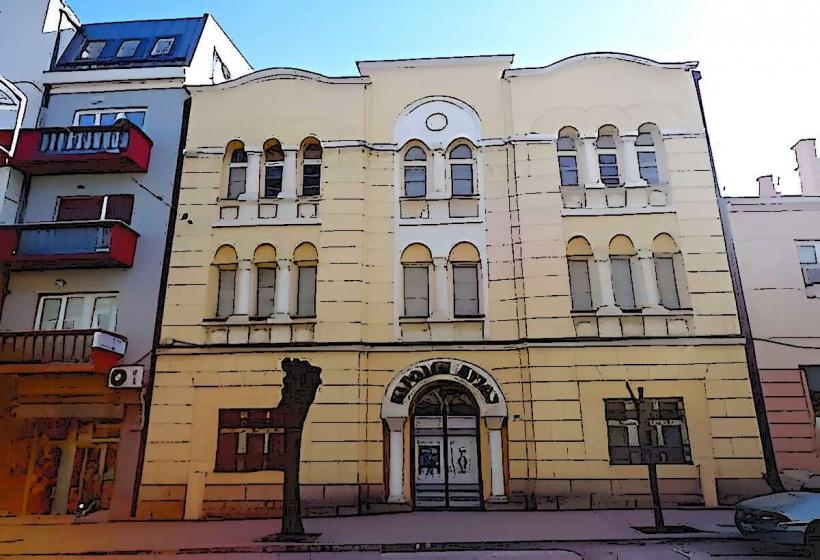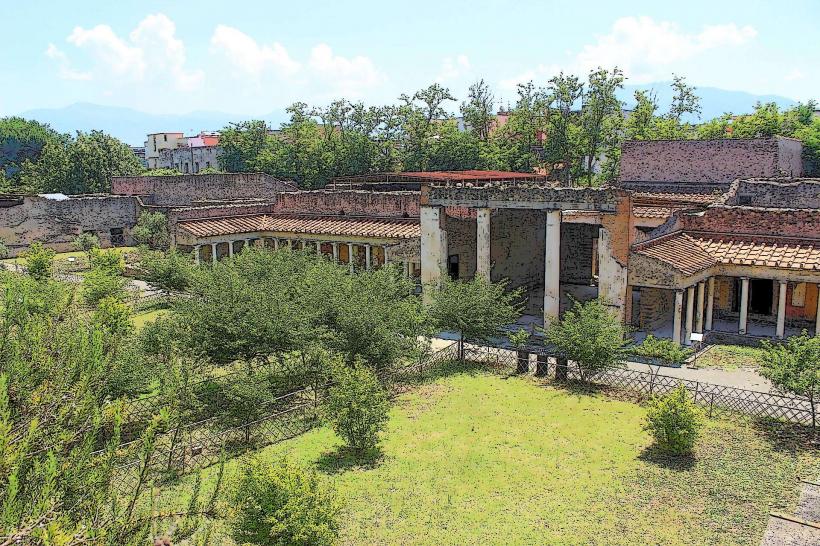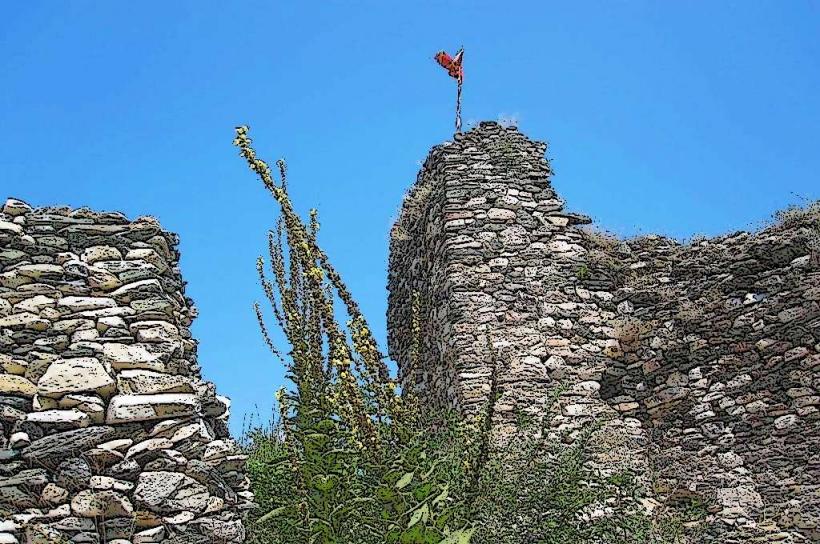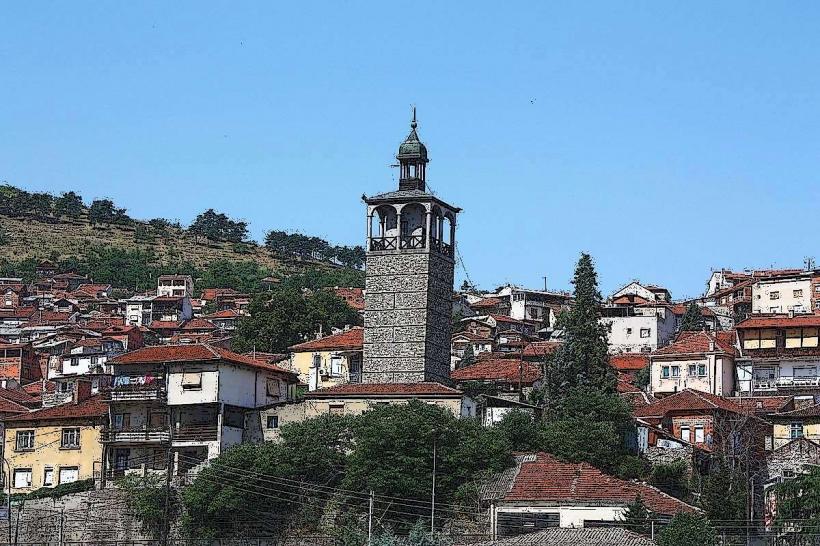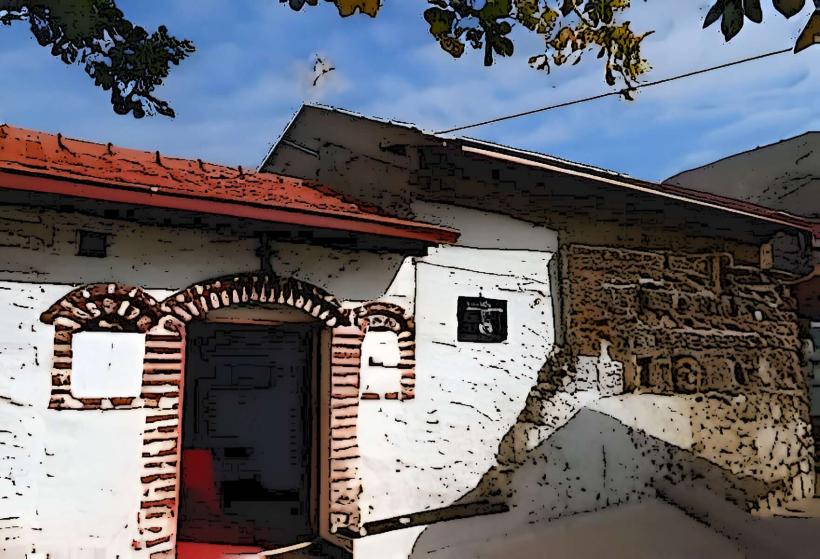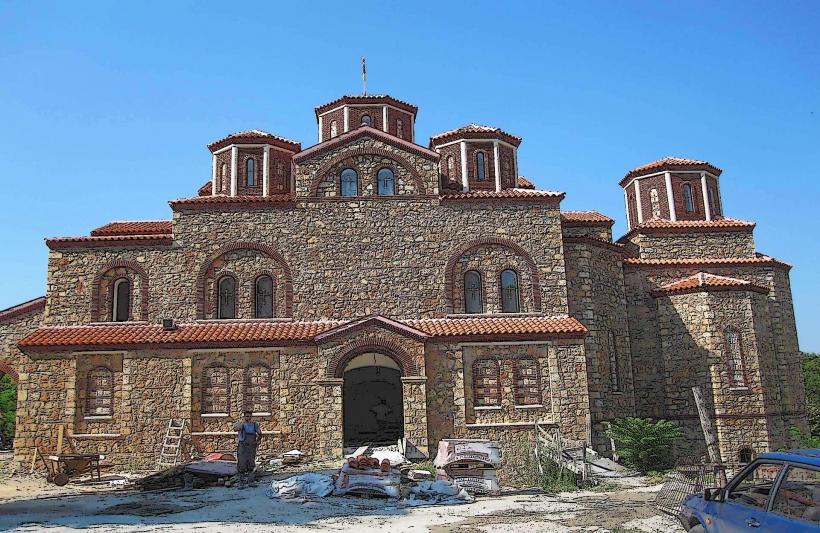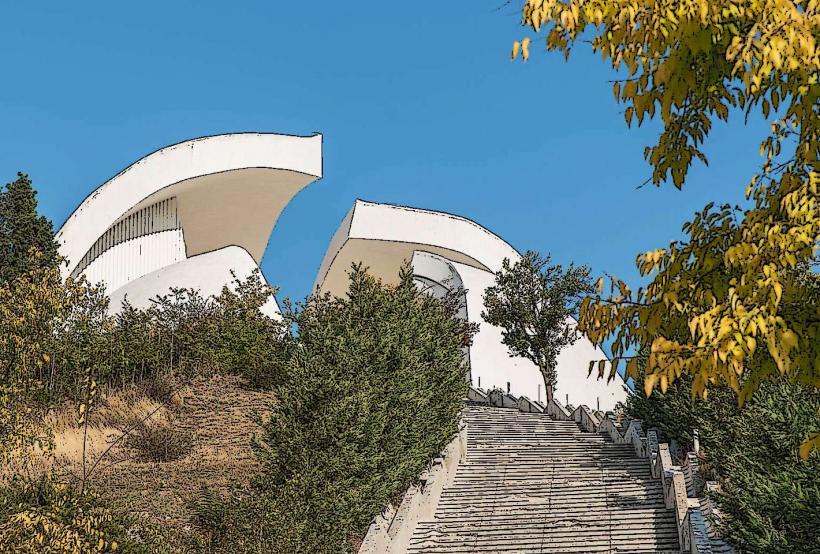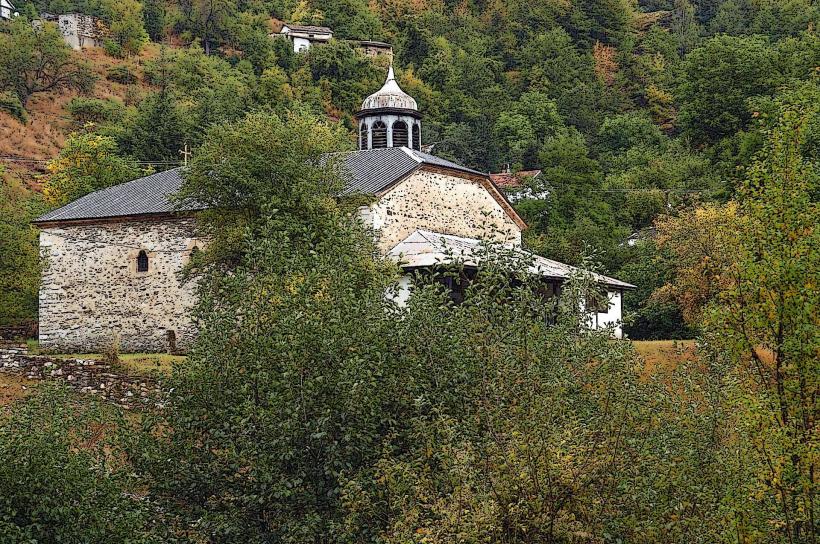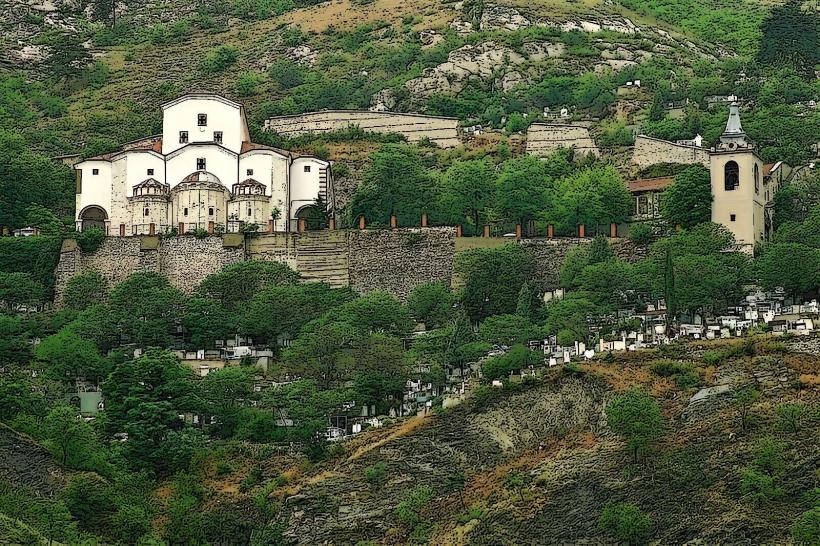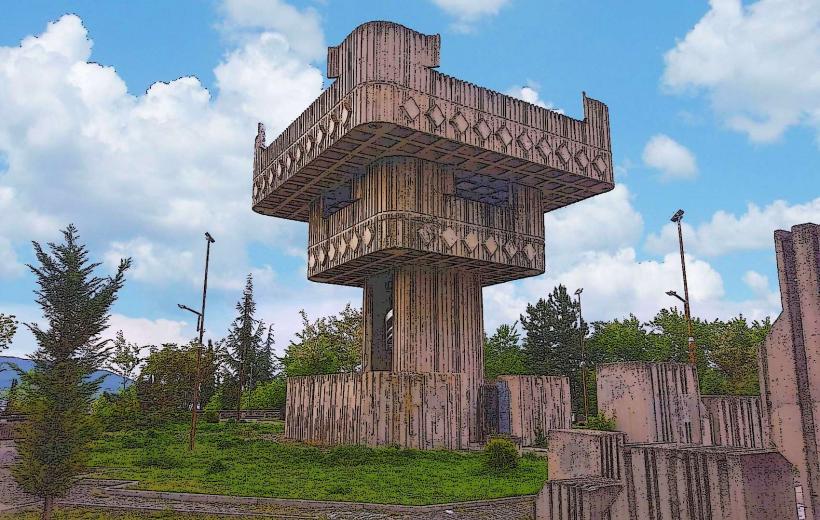Information
Landmark: Ruins of the Roman CityCity: Veles
Country: North Macedonia
Continent: Europe
Ruins of the Roman City, Veles, North Macedonia, Europe
The Ruins of the Roman City of Stobi represent a significant archaeological site containing remnants of an ancient Roman and Early Byzantine settlement. This site is situated approximately 16 kilometers south of the modern city of Veles in North Macedonia.
Visual Characteristics
The site features extensive foundations, preserved sections of walls, and numerous mosaic floors. Primary construction materials include local grey stone, red brick, and marble fragments. Structures vary in height from ground-level foundations to several meters for some wall sections, such as those of the Roman Theater. The predominant colors are weathered grey stone, earthy red brick, and the natural tones of exposed soil. Architectural styles reflect Roman and Early Byzantine periods, with visible elements of basilicas, residential complexes, and public buildings.
Location & Access Logistics
The Ruins of the Roman City of Stobi are located directly adjacent to the A1/E75 highway. From Veles, travel south on the A1/E75 for approximately 16 kilometers. A clearly marked exit provides direct access to the archaeological park. Ample free parking is available at the site entrance. Public transport options are limited; intercity buses on the A1/E75 may stop at the highway exit, requiring a short walk to the entrance. Private vehicle or taxi is the most direct method of access.
Historical & Ecological Origin
The city of Stobi was initially founded by the Paeonians in the 7th century BCE. It later became a significant Roman provincial capital in the 2nd century BCE, flourishing as a strategic crossroads and a major urban center. Its original purpose evolved from a trading post and military stronghold into a prominent administrative and religious hub. The city experienced significant destruction, notably from a powerful earthquake in 518 CE, leading to its eventual abandonment.
Key Highlights & Activities
Visitors can walk through the excavated streets and explore the remains of the Roman Theater, which seated approximately 7,600 spectators. Observation of the well-preserved mosaics within the Episcopal Basilica and the House of Peristera is possible. The foundations of the Synagogue and various Roman baths are also accessible. Informational panels are positioned throughout the site, providing historical context. Guided tours are available upon request at the visitor center.
Infrastructure & Amenities
A modern visitor center is situated at the entrance, providing restrooms and a small gift shop. Limited natural shade is available from scattered trees and within some larger structural remnants. Cell phone signal (4G/5G) is generally reliable across the archaeological park. A small cafe offering beverages and light snacks is located near the visitor center.
Best Time to Visit
The optimal time for visiting is during the spring months (April-May) and autumn months (September-October), when temperatures are moderate and comfortable for outdoor exploration. Early morning or late afternoon hours are recommended for photography, as the sun casts longer shadows and provides softer light on the ruins. Summer months (June-August) can experience high temperatures, making midday visits less comfortable.
Facts & Legends
The Episcopal Basilica at Stobi contains some of the most well-preserved early Christian mosaics in North Macedonia, featuring intricate geometric patterns and animal motifs. A verified historical oddity is the discovery of a large number of coins, indicating that Stobi served as a significant minting center during specific Roman periods. A practical tip for visitors is to wear comfortable, sturdy walking shoes, as the terrain consists of uneven paths and excavated stone surfaces.
Nearby Landmarks
- Stobi Winery: 1.5km East
- Village of Palikura: 2km South-West
- Confluence of Crna Reka and Vardar River: 3km North-West

